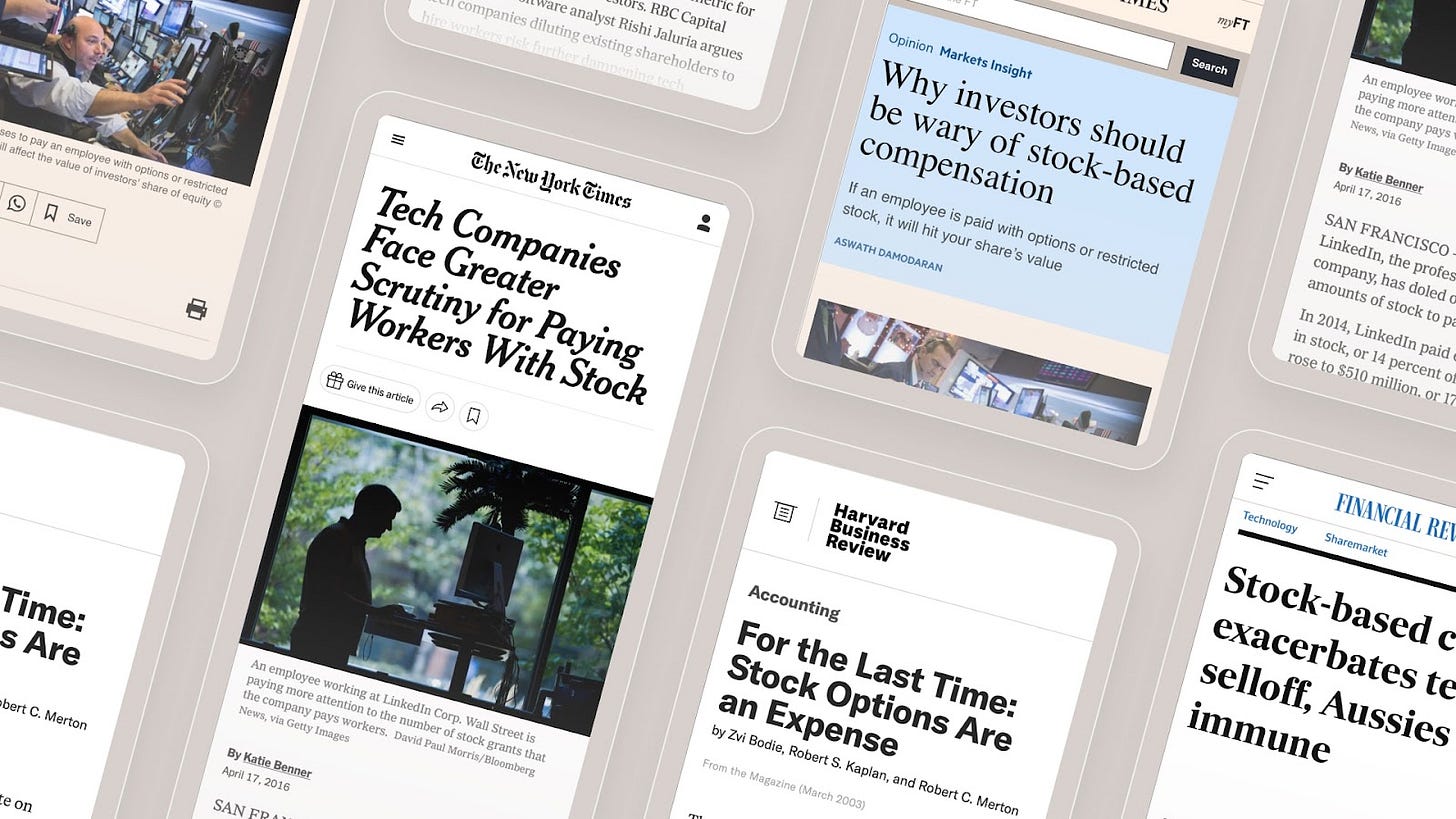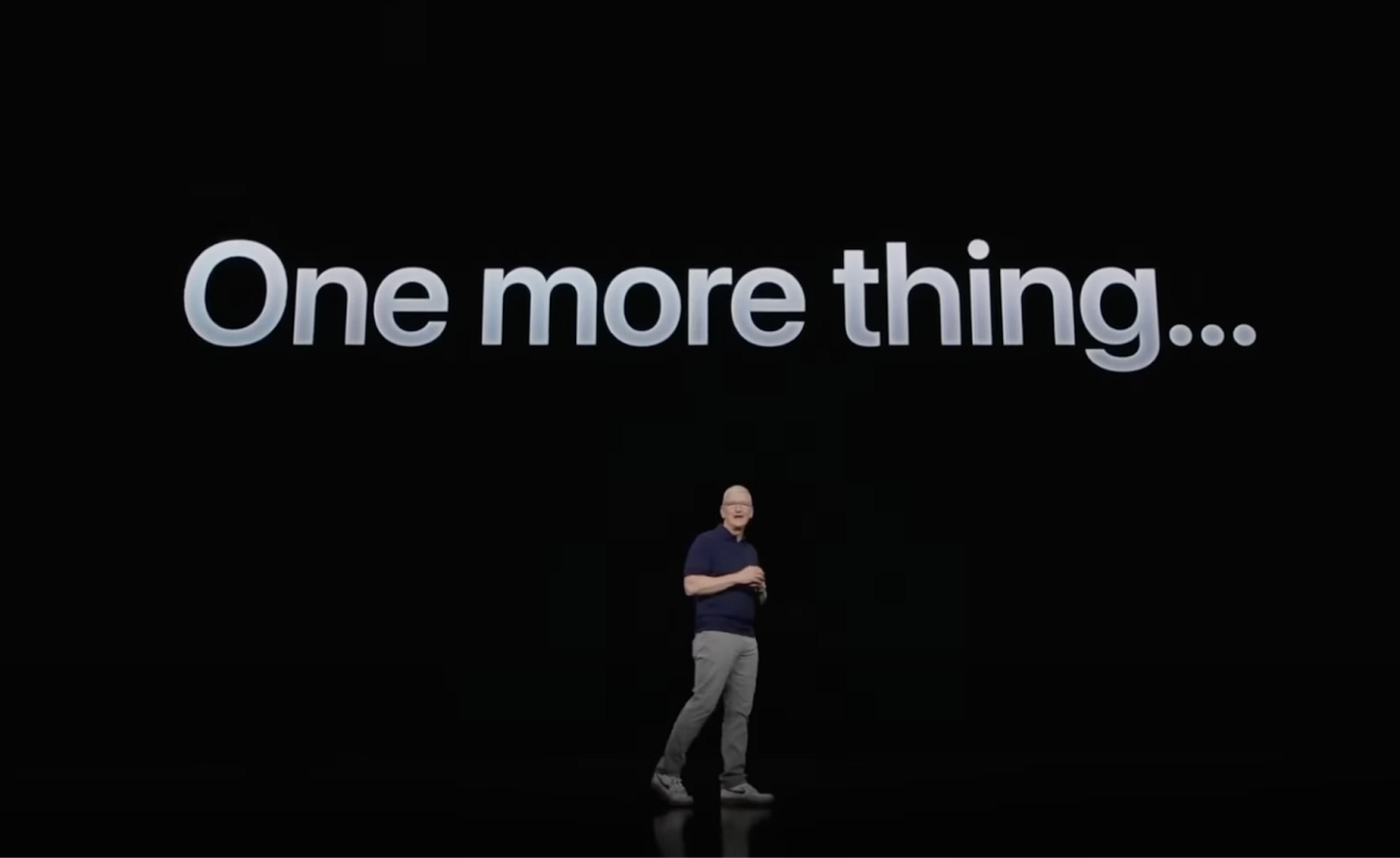The Flex - June '23
A collection of topics on tech and the startup industry brought to you by Flex Capital.
Our Latest Thinking.
Investors Don’t Actually Care About Stock Based Comp.
“The very name says it all: 'compensation.' If compensation isn't an expense, what is it? And, if real and recurring expenses don’t belong in the calculation of earnings, where in the world do they belong?” - Warren Buffett
We recently stumbled upon a confounding nugget of research: Public investors generally do not factor Stock Based Comp (“SBC”) into valuations. The data is clear that SaaS companies are valued by investors using adjusted metrics that are exclusive of SBC. For each dollar of SBC, there's dilution for the existing shareholders. Investing in two companies with the exact same enterprise value growth can have drastically different returns due to SBC. So, do investors actually care?
We deep dive into what SBC means for companies and investors in our latest article:
You can also find a TLDR of the post on Twitter.
What Matters Now.
SafeGraph CEO & Flex Capital GP Auren Hoffman hosted Marissa Mayer on World of DaaS. Marissa is the co-founder of Sunshine, serves on Walmart's board, and was formerly Yahoo's CEO from 2012 to 2017.
Tune in for an incredible episode 👇
🤖 The AI arms race
🔎 Lessons from the early days of Google
📈 Making huge companies (Yahoo, Walmart) more efficient
🎤 Spotting + developing early talent
🎧 Audio versions are available here. World of DaaS is a weekly podcast for data enthusiasts. For more episodes, visit https://www.safegraph.com/podcasts.
Diving Deeper.
Is Salesforce Becoming a Data Company?
During the Q1F24 earnings call on May 31st, Salesforce (CRM) reported $8.25B in revenue, indicating 11% year-over-year growth. While this exceeded analysts' forecasts, it fell short of the previous quarter's 14% surge.
Despite the decelerating growth in some core areas, its novel "Salesforce Data Cloud" has emerged as the fastest-expanding segment among the company's portfolio. Though this new service contributes less to overall revenue, its AI-centric approach could be a catalyst for Salesforce’s overall growth trajectory.
As large language models (LLMs) become more commoditized, Salesforce's unique advantage lies in its ability to harness vast amounts of proprietary data, enabling the training of highly specialized AI to meet customer needs at a superior level (Salesforce most recently launched its AI cloud offering as well as a $500M fund to back AI startups).
On top of this, given the need to process datasets before their utilization in AI models, Salesforce's recently introduced Data Lake architecture – akin to Databricks – is a pivotal resource. It facilitates seamless end-to-end management of data pipelines for customers, resulting in a truly data-driven operational cycle.
Considering their large customer base, an end-to-end system ensures customer data stays within the ecosystem. This creates a competitive edge for both Salesforce and its customers: Increased data leads to enhanced models, resulting in improved customer outcomes. This then feeds back into the system, providing even more data to Salesforce, thus creating a virtuous cycle.
The Non-Obvious.
Apple Vision Pro - a new platform for developers?
One week after its launch, Apple's mixed-reality headset has already become a global phenomenon. Although the device might not yet be at a price point for mass adoption, akin to the first iPhone, it is an opening volley that helps decrease component costs via increasing scale and starts the flywheel of an app ecosystem.
While tech’s collective attention has been on AI, as pointed out with Salesforce, AI may favor incumbents more than startups. This is likely because, with the exception of OpenAI, this innovation has not created a digital “place” where people are shifting their time spent (OpenAI is the exception because it monopolizes the newly conquered user engagement through its chat-based interface).
It is still to be determined how many users and how much time VisionOS can conquer, but it represents a more egalitarian platform shift than AI, where entrepreneurial developers would play at a level or even advantaged playing field relative to incumbents.
See you next month 👋




